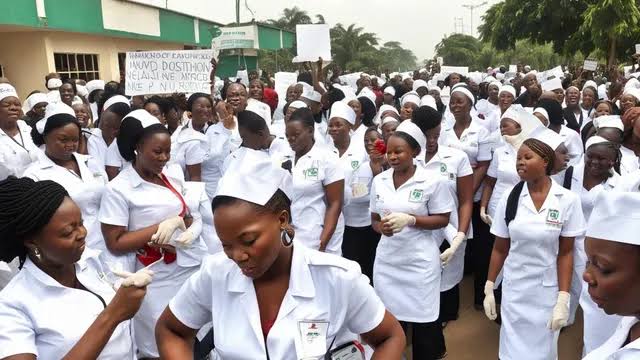The Nursing and Midwifery Council of Nigeria (NMCN) has intensified its campaign against quackery and unaccredited training institutions across the country.
Speaking in Minna on Thursday, the Registrar of the Council, Alhaji Ndagi Alhassan, said the Council has launched coordinated efforts to tackle the twin problems that threaten the integrity of nursing and midwifery practice in Nigeria.
His appointment as the substantive Registrar was recently confirmed by President Bola Tinubu, as conveyed through a letter signed by the Coordinating Minister of Health and Social Welfare, Prof. Ali Pate.
Alhassan explained that the Council operates 21 Zonal Offices spread across the 36 states and the Federal Capital Territory (FCT), each tasked with overseeing nursing and midwifery activities in their respective regions.
“At the states’ levels, we have committees known as Nursing and Midwifery Committees that supervise activities in both education and practice,” Alhassan said.
“To that effect, should there be anything happening in the states, they report back to the headquarters in Abuja.”
He noted that these committees are empowered to collaborate with state Commissioners for Health to clamp down on illegal institutions and arrest unqualified practitioners.
“Now with the activities of illegal training institutions and quackery, the two arms are empowered to work with the Commissioners for Health in the state concerned to take action.
This is by swiftly closing down the illegal training institution or get the quacks arrested for possible protection,” he stated.
The Registrar also highlighted the work of the Council’s legal department, led by a Legal Adviser, which is tasked with handling litigation and prosecuting offenders in courts across the federation.
“They prosecute such suspects in any of the available Courts in the 36 states and Abuja,” he said.
To further enhance accountability, Alhassan revealed that Anti-Corruption and Transparency Units have been set up to monitor the conduct of training institutions and report unethical practices through zonal offices up to the Council headquarters. Such reports are then forwarded to the Independent Corrupt Practices and Other Related Offences Commission (ICPC) for prosecution.
“Happily, this has greatly minimised the activities of quacks and illegal training institutions in the country,” he noted.
The Council is also working closely with the Office of the Inspector-General of Police (IGP) to reinforce its enforcement strategies.
“Now there is even a Nurse who has been appointed as a CP and we report such infractions and cases to him for necessary actions to be taken immediately,” Alhassan said.
In a bid to upgrade professional standards, the Council has also set up an X-ray Council and is in the process of equipping it with the necessary logistics.
On education reforms, Alhassan disclosed that the Council is revisiting its curriculum in collaboration with the National Universities Commission (NUC) and the National Board for Technical Education (NBTE) to ensure nursing and midwifery training meets modern clinical demands.
“Hence, we have taken measures like reviewing our curriculum, working with the related educational regulatory bodies such as NUC and NBTE.
We are working with them to perfect our curriculum to form the basis of training Nurses and Midwives in the clinical field,” he explained.
He also noted that a biennial national conference had been instituted to bring stakeholders together to share knowledge, identify challenges, and map out solutions.
“At the last conference, we brainstormed and identified the gaps as well as strategised on how to handle them.
Also, information on new methods was duly conveyed to the delegates from across Nigeria.
This is for them to go back to their respective states, cascade them and take action on them,” he added.



